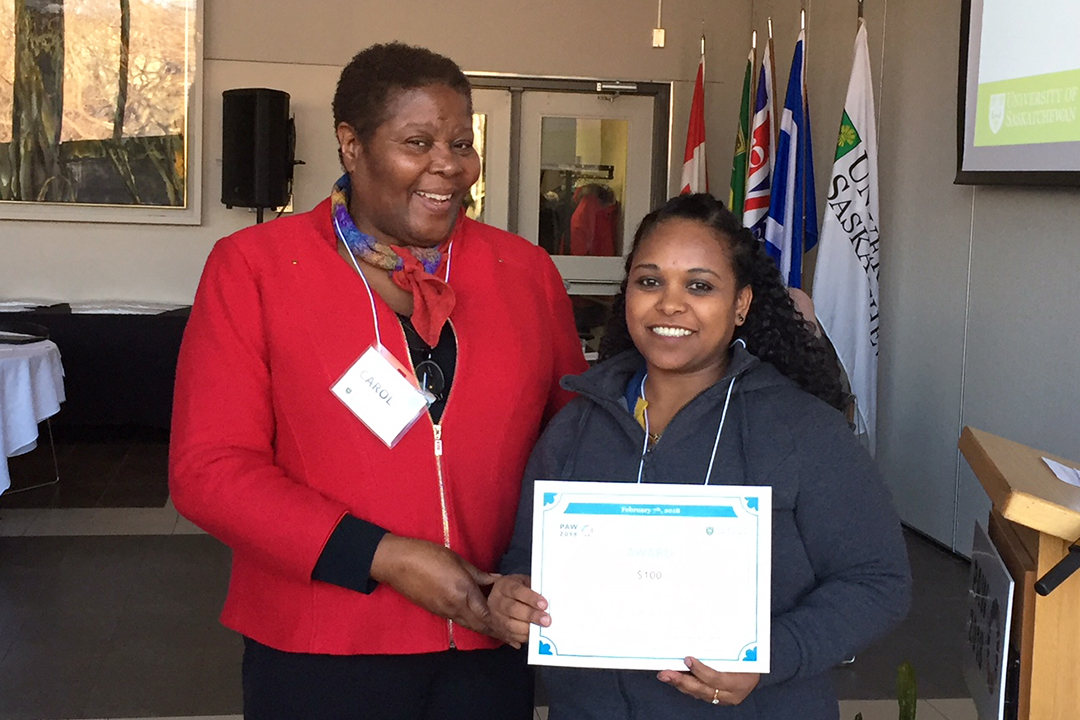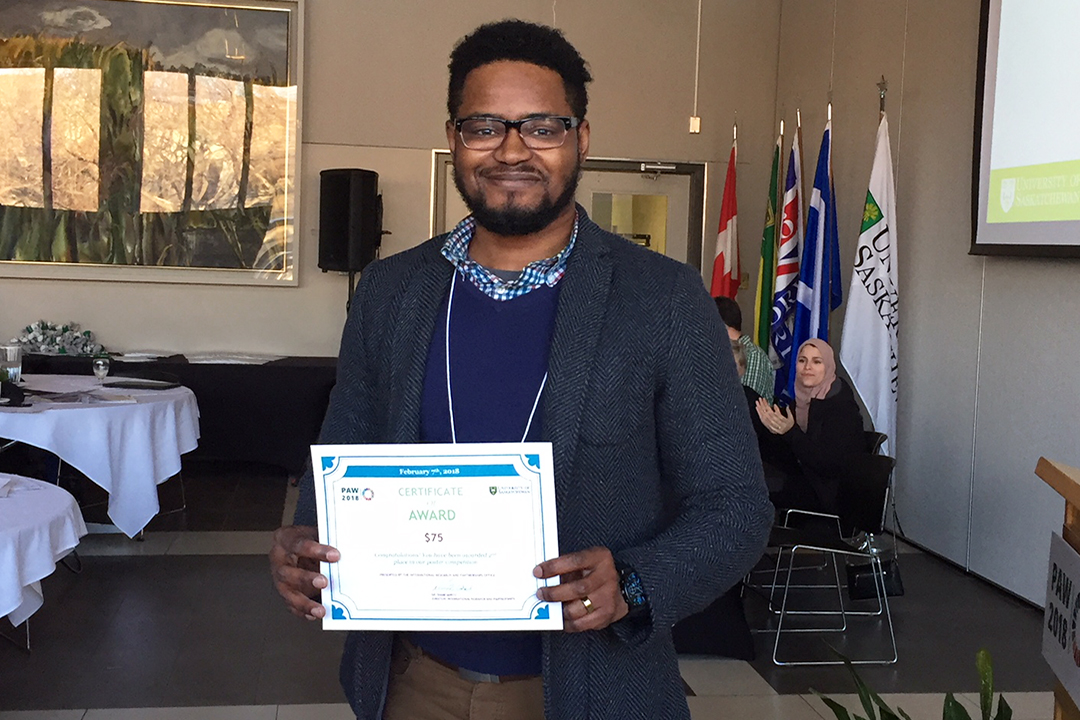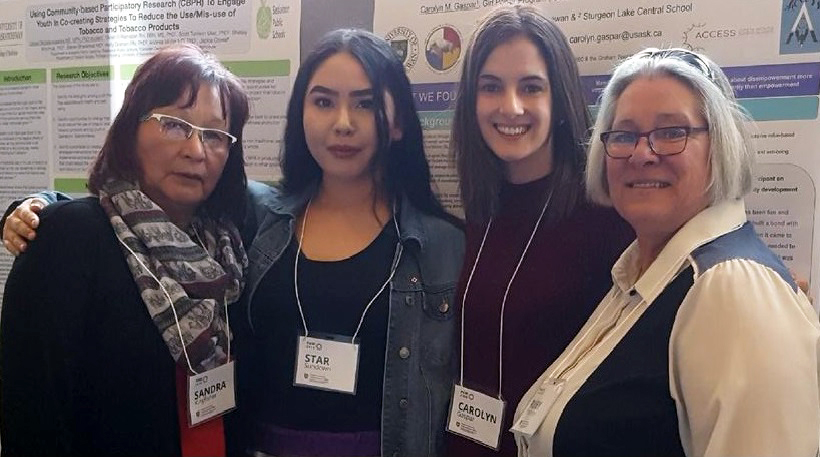
Graduate students winners in first PAW 2018 poster competition
University of Saskatchewan graduate students Getenesh Berhanu Teshome, Udoka Okpalauwaekwe and Carolyn Gaspar are the winners of a poster competition held in conjunction with the Feb. 7th People Around the World “PAW” conference.
By Federica GiannelliPAW 2018 highlighted the impact, outreach and engagement of the university’s international research. The poster competition demonstrated students’ engagement in community-based research nationally and internationally in a variety of fields that include healthcare and well-being:
- First prize – Getenesh Berhanu Teshome. “Empowering Rural Women through Nutrition Education and Seed Provision to Reduce Undernutrition in Young Children Aged 6-24 Months in Rural Sidama, Southern Ethiopia.”
Teshome has been combating children’s malnutrition in southern Ethiopia by helping educate more than 300 mothers and by providing them with haricot bean to plant.
“In low-income countries, women are responsible for producing and preparing food for their families, so providing mothers with appropriate information and resources can improve the health of their children,” said Teshome. “That was what I tried to do in rural Ethiopia.”
She has found that mothers who have been educated on the benefits of eating pulses gave these regularly to their malnourished children, resulting in a significant weight gain in just over nine months.

Second prize – Udoka Okpalauwaekwe. “The Use of Alternate Tobacco Products (ATPs) among Saskatchewan Students in Grades 8 through 10: A Population-Based Analysis of the 2014/2015 Canadian Student Tobacco, Alcohol and Drugs Survey (CSTADS).”
Prevalence studies show that almost 23 per cent of Saskatchewan youth use tobacco and tobacco products ‒ the highest rate in Canada. Okpalauwaekwe has been looking at Saskatchewan high school students’ use of Alternative Tobacco Products (ATPs) such as vapes, hookahs and pipes by analyzing data from the 2014/2015 Canadian Student Tobacco, Alcohol and Drugs Survey (CSTADS).
His results show that males used ATPs twice as often as females, and usage among Indigenous youth was double that of other ethnicities. He also found that Saskatchewan teenagers keep using ATPS because they are highly unaware of harmful health effects.
“Youth need to understand the risks of using tobacco and other tobacco products,” said Okpalauwaekwe. “Encouraging youth to take charge of their health and well-being is key to achieving our population health goals.”

Third prize – Carolyn Gaspar. “Culturally Understanding Empowerment to Inform Community Development Research in a First Nation Community.”
Working side by side with Sturgeon Lake First Nation (SLFN), Gaspar has been involved in a community-based research project with The Girl Power Program, an educational program that helps teenage girls understand and discuss issues such as sexual violence and abuse, parental neglect, and teenage pregnancy.
“We need to authentically engage youth to ensure that they see themselves as part of the change within community development. Through this we begin to see how young girls inspire, dream, and hope for a better tomorrow,” said Gaspar.
Following the idea of mamāhtāwicikew, which means “empowerment” in Plains Cree, Gaspar and other community members have collected information about girls’ experiences and have found that girls’ opinions are vital to the co-design and delivery of empowerment initiatives.
The girls have reported hunger and poverty as the main obstacles to empowerment in the community. In response, the school and ACCESS Youth Centre have created a community garden to help reduce hunger among youth.

